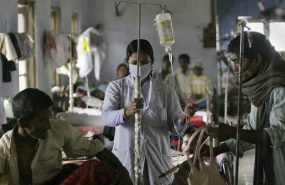Transition of TB program in Romania: the role, opportunities and priorities for civil society
- 18.06.2019 12:07
- Post Views: 2,048
Based on the Global Fund Board’s decision in November 2016 on the allocation of resources for the 2017-2019 allocation period, Romania has been allocated € 4,052,972 for tuberculosis and building resilient and sustainable systems for health. The implementation of this new TB grant in Romania formally started in March 2019 and it is planned to finish its implementation in March 2021. This grant is being considered as the last TB grant for the country to support the transition processes. Although the new Global Fund 2019 Eligibility List does mention Romania as being eligible for TB funding again, yet, the eligibility does not guarantee an allocation, and it is not clear if Romania will be allocated any further funding to support the TB response in 2020 – 2022.
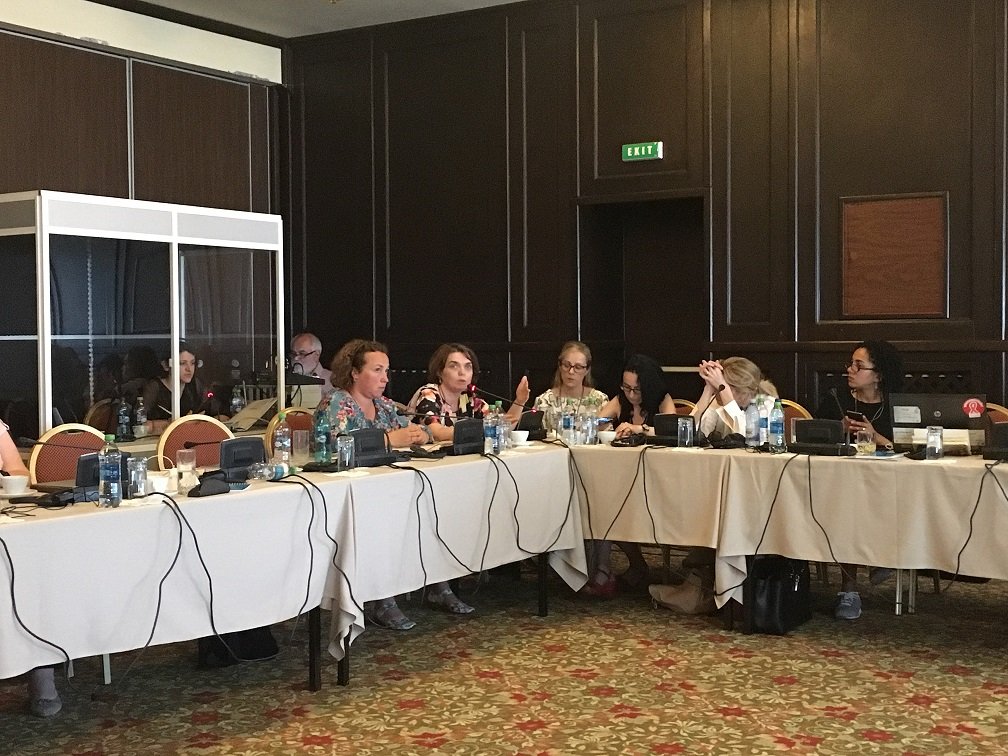
Although Romania is ineligible to receive Global Fund funding for HIV response since 2010 when its last Global Fund HIV grant came to an end, the current “transition grant”, as well as all previous TB grants to Romania, includes a significant component on HIV prevention among key affected populations (KPs). Therefore, civil society mobilization for joint advocacy to ensure the domestic funding of HIV prevention activities among KPs is essential.
At the same time, according to the Global Fund’s Eligibility List 2019 Romania may be eligible for an allocation for HIV/AIDS for non-governmental or civil society organizations if the country demonstrates the barriers to providing funding for interventions for key populations, as supported by the country’s epidemiology. The Global Fund Secretariat will assess whether the criteria have been met at the time of determining allocations for the 2020-2022 allocation period. The decision on the countries‘ allocations within the next 2020-2022 allocation period to be made by the Global Fund Board in November 2019.
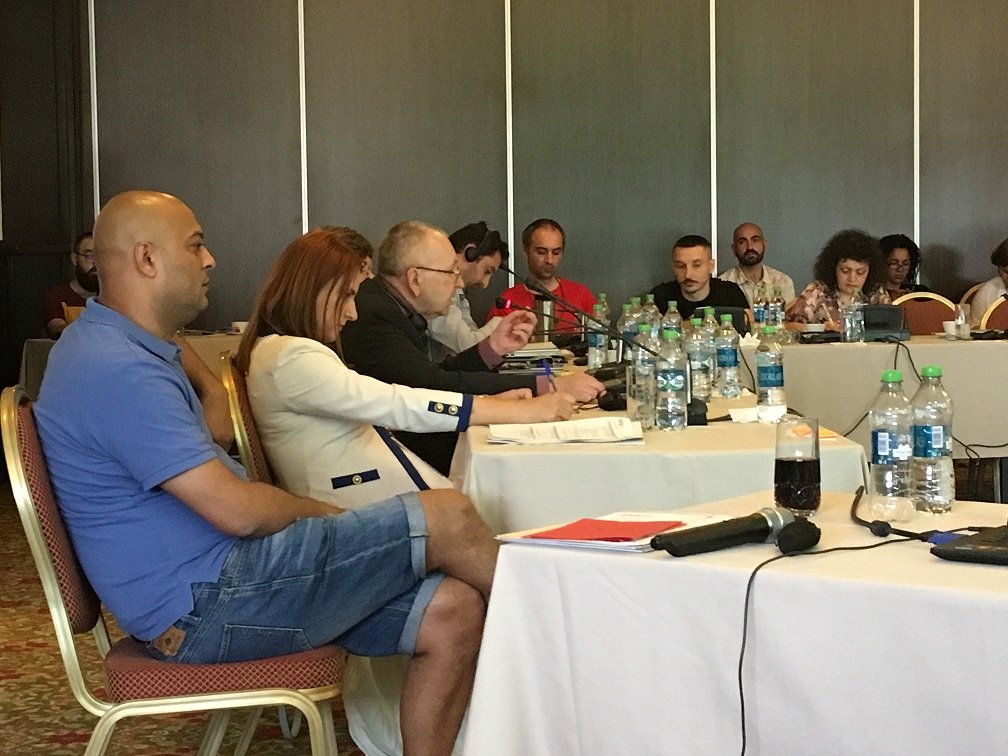
Considering this Romanian transition context, 35 participants including civil society representatives, CCM members, Global Fund Portfolio Manager, experts from neighboring countries and representatives of the governmental structures gathered in Bucharest on 13 – 14 of June at a workshop “Transition from the Global Fund support of TB program to national funding: understanding the role, opportunities and priorities for civil society in Romania” to discuss what they can do for a greater sustainability of the country’s responses to the TB and HIV epidemics.
The participants first heard the information about ongoing efforts and the perspectives from the leading experts of public health, TB and HIV, and the Global Fund’s portfolio manager. Guest activists from the Republic of Moldova and Montenegro shared their lessons and paths to energizing political commitment, developing social contracting of NGO services and pursuing inclusive multi-stakeholder dialogue.
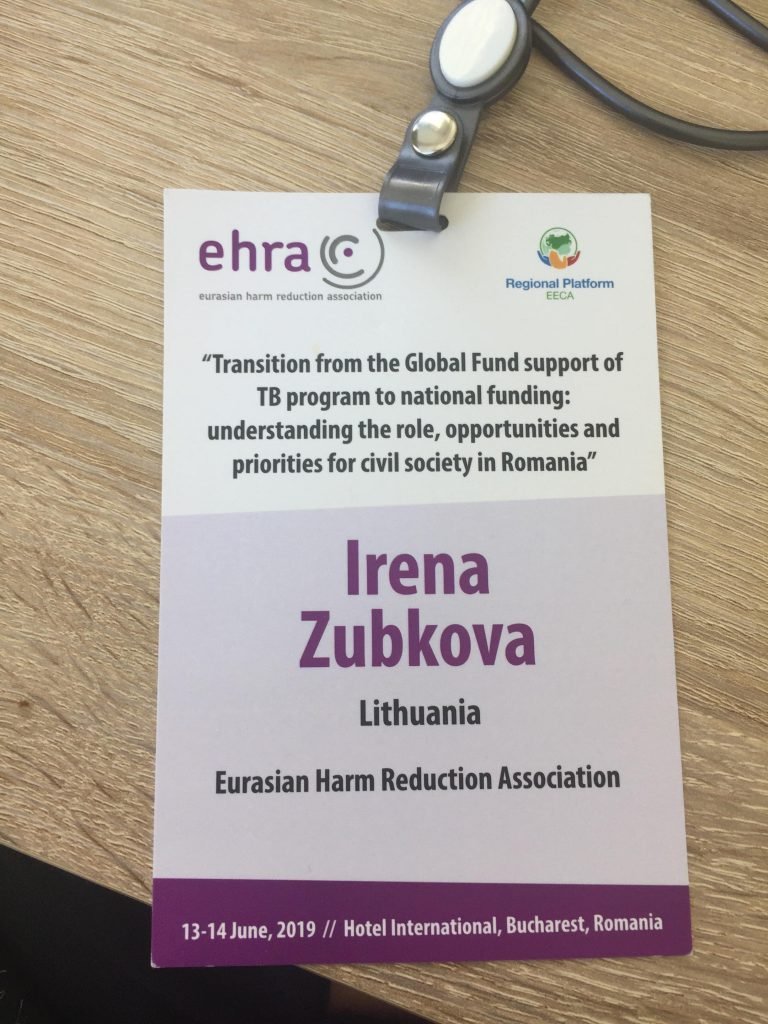
The participants discussed their advocacy plans during the workshop in next areas: (1) sex education for young people as part of developing SRHR policies; (2) political commitment to TB, HIV, STI and hepatitis; and (3) social contracting mechanism. The possibility to advocate for the allocation of funding by the Global Fund to support HIV and TB responses in romania within the next allocation period was discussed as well. An update on the CCM evolution project and Global Fund CCM policy and practices led to the discussion on the priority to make CCM operational and at the same time on the need to decide and initiate the process of establishing a functional national body that would lead on HIV and TB strategies in post Global Fund era. Adding more cooperation opportunities under the CCM or outside CCM would be important for civil society. Also, currently there is less preparedness for focusing on stronger constituency accountability of civil society and community represenatives in CCM.
The workshop took a challenging task of discussing future advocacy when a number of relevant strategies are under way within the three critical projects for sustainability supported by the Global Fund: a TB transition grant; a regional EECA HIV grant; and a CCM evolution project. This limited the discussions on future advocacy where studies are under way or strategies have been planned and are about to start. The participants touched upon but did not analyze in a greater detail three key components for sustainability:
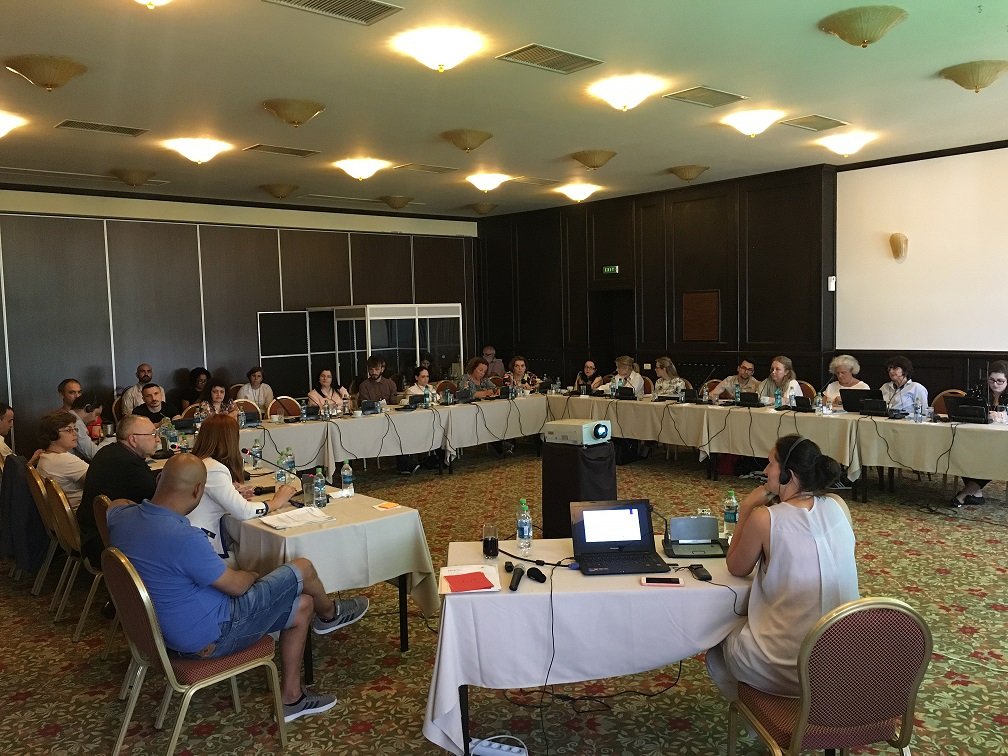
(a) changing the model of TB care;
(b) mobilizing support from local authorities; and
(c) getting better pricing for medications which would free funds for prevention and support under the national HIV and TB programs.
Two additional sources of support are available for Romanian civil society and were presented in detail: grants from Active Citizen Fund supported by Norway, Iceland and Lichtenstein; and Global Fund’s technical support on Community, Rights and Gender (CRG).
The event was organized by the Regional Platform for Communication and Coordination for the EECA Region, hosted by Eurasian Harm Reduction Association (EHRA), in partnership with the Global Fund Secretariat and with support of the Secretariat of the Romanian CCM and Romanian Angel Appeal Foundation.
A report on the results of the event is available here.
Related News
Global Fund Strategy Development – Open Consultation Questions
COVID-19 is radically altering global health, politics and economics, and the impact upon programs fighting HIV, TB and malaria will likely be tremendous. The new pandemic could completely derail our vast efforts of the past 20 years. At the same time, it has galvanized public awareness on global health security in a way that builds […] Read moreGlobal Fund Technical Brief Tuberculosis, Gender and Human Rights
The purpose of this technical brief is: to assist Global Fund applicants to consider how to include programs to remove human rights and gender-related barriers to tuberculosis prevention, diagnosis and treatment services within funding requests, and to help all stakeholders ensure that TB programs promote and protect human rights and gender equality. Post Views: 813 Read moreGlobal Fund Technical brief on HIV and key populations Programming at scale with sex workers, men who have sex with men, transgender people, people who inject drugs, and people in prison and other closed settings
The purpose of this technical brief is to provide information for countries preparing funding requests for comprehensive programs that address the cascade of HIV prevention, diagnosis, treatment, and care for the following key populations: male, female, and transgender sex workers, gay men and other men who have sex with men, transgender people (especially transgender women), […] Read moreServices for migrants and refugees from Ukraine – HIV/TB care with a focus on key populations
Due to the increasing flows of refugees from Ukraine because of Russia’s invasion of Ukraine, the EECA Regional Platform created a spreadsheet to fill contacts details of face-to-face and online services for refugees and migrants (with a focus on HIV/TB care and key population groups).
Regional Platform – EECA
This web-resource is a part of new regional communication and coordination project “Regional Civil Society and Community Support, Coordination and Communication Platform - EECA”, implemented by Eurasian Harm Reduction Association (EHRA).
Tags
See also
-
Grant Cycle 7 Reprioritization: How can communities prepare? 02.07.2025 12:03
-
Webinar: Using Global Fund's Data for Advocacy 12.06.2025 12:00




